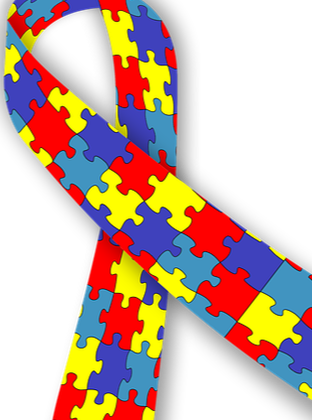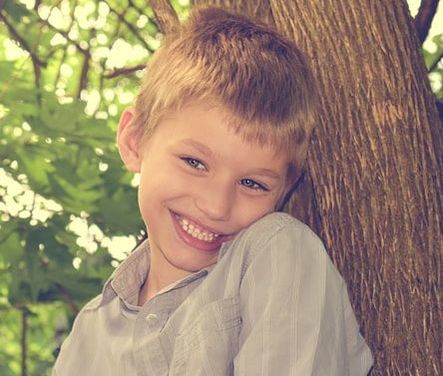Grandma supported her opinion by saying, "If it walks like a duck, quacks like a duck and looks like a duck, isn't it a duck?" No, not necessarily.
He may actually be suffering from Social Communication Disorder which was previously called Social Pragmatics Disorder, but that label didn't mean much to just about anyone except the professionals.
So, the latest version of the Diagnostic and Statistical Manual, the 5th Edition, is actually including this Social Communication Disorder as it's own separate diagnosis. Yay!!! It gets a lot more "respect" that way.
The DSM-5 is the mental health profession's version of the International Classification of Diseases-9th Edition which is diagnostic guidelines for physicians.
You also know that the level of language development is the most accurate predictor of "recovering" from the condition or at least making progress with therapies and minimizing its impact.
The essential difference between Autism and Social Communication Disorder is the absence of repetitive behaviors and restrictive areas of interest.
Those on the autistic spectrum can have "odd", repetitive behaviors such as rocking back and forth, hand wringing, hand flapping, hair pulling, etc.
In my experience, each of my clients on the spectrum had a different presentation when it came to this diagnostic feature. Some of "my kids" had verbal repetitive behaviors. Oftentimes, they would preface the answers to the test questions with phrases such as "I'm sure it's..." and then, offer their answers. Some of them "wrote" on the desk top with their fingers. Some pulled at their ears, eyelids or eyebrows.
These behaviors are likely a reaction to sensory sensitivities, being overwhelmed or are self-soothing strategies.
I was confounded, for a number of years, as to why so many had intense interest in World War II.
I came to the conclusion that the data regarding the war was varied and they could focus on the people, the battles, the weaponry or the locations. There was appeal in that the facts were certain, it was a subject acceptable in the classroom and people are generally interested in the history of wars (to a certain extent). However, their "interest" was in the extreme and it was their only interest, hence, qualifying as a "restricted area of interest".
Well, I think about it this way. Language is like a song. Lyrics and melody or music. So is language. There is the word knowledge - you know what the words and concepts mean, and then, there's the music - all of the elements that convey the emotion and emphasis. The elements that engage others into creating a conversation with you. It's the "human connection" part.
Deficits in both of these areas are the main features of Social Communication Disorder.
1. Staying on topic.
2. Using gestures that are consistent with the topic.
3. Adding emotional content to the conversation (how the speaker feels or how s/he observed others feeling).
4. Speaking with vocal inflections. Does the speaker have appropriate prosody which is speed and intonations that vary in order to emphasize and communicate competently?
5. Do they allow for reciprocity? That's the whole taking turns talking and then listening "dance".
6. Asking relevant questions in order to engage other people in the conversation.
7. Adjusting their speech to fit the audience.
If I had my way, they'd get a comprehensive evaluation following the same guidelines I used in my practice to evaluate autism because Social Communication Disorder impacts many of the same areas as does autism. Check out my assessment plan for evaluating autism.
Let me say that there are several outstanding reasons to get a comprehensive evaluation. On more occasions than I can remember, clients of all ages would present with a previous autism diagnosis and I identified them with language processing disorders and Attention-Deficit/Hyperactivity Disorder much to the relief of their parents!
When a comprehensive evaluation is conducted, a thorough remediation plan can be undertaken. There's no question in parents' minds of "Did we cover it all? Are we doing everything we can right now?"
Social Communication Disorder can be a debilitating condition. It is so powerful, in fact, that while it may allow for a person to be employable, they are unlikely to have a meaningful social life or intimate relationships.
I encouraged the grandma who reached out to the show to be very supportive of this little boy's therapeutic interventions.
I would also encourage her to educate herself about the condition and be as active in the therapy as she is allowed. If the family is taught the same techniques used by the therapist, he's likely to make faster progress. Everyone needs to be on the same page and have the same "script" in order to reinforce the therapeutic effort.
Finally, I recommended that once the therapeutic goals are met for the particular time frame, that his language be evaluated every year in order to determine if he is keeping pace with his age peers in terms of global language progress and the "pragmatics" or social component of language.
Good luck out there!
Claudia
Join me on Facebook at Dr. Claudia McCulloch.
At DrClaudia.net, click on the "Ask Me" button and send me a question.
Sign up the for the Sunday newsletter. You don't want to miss a thing!






